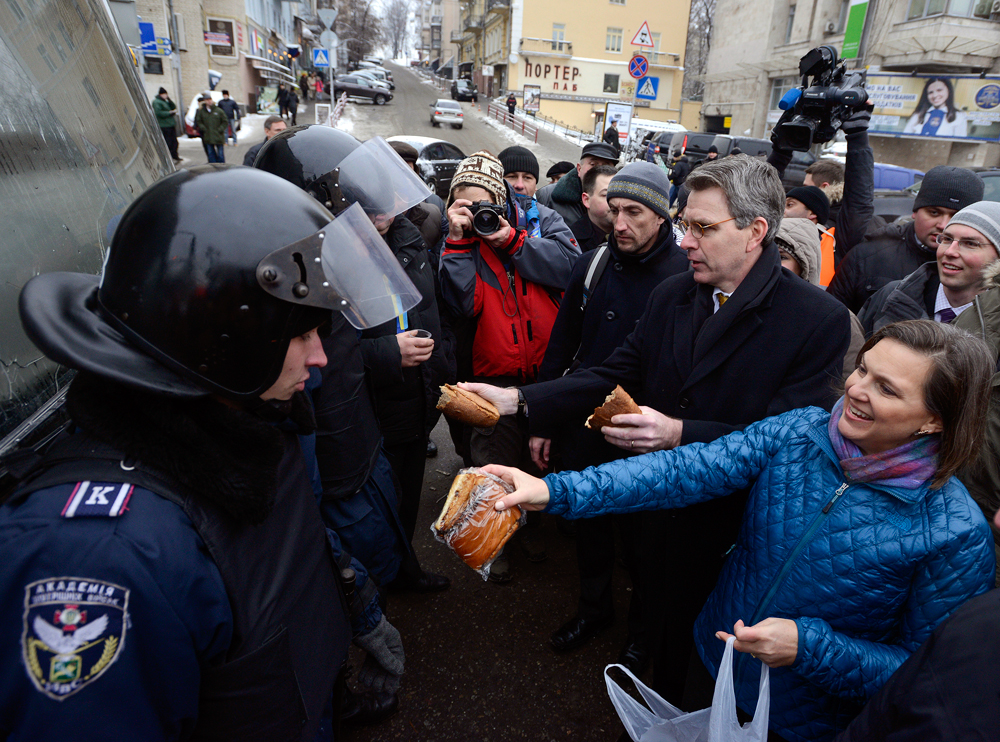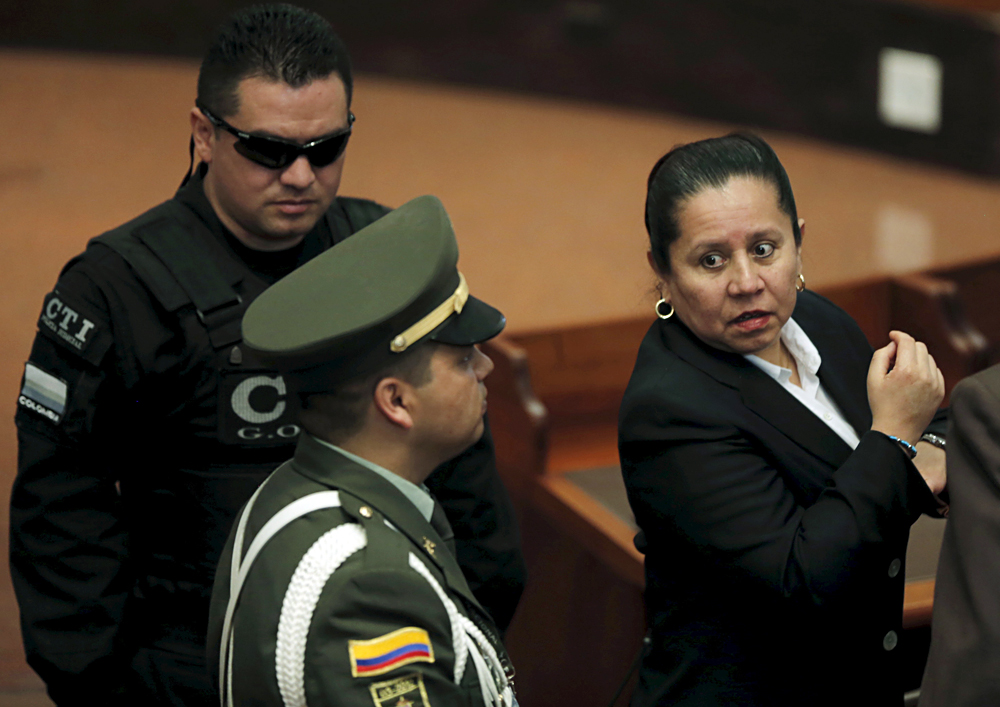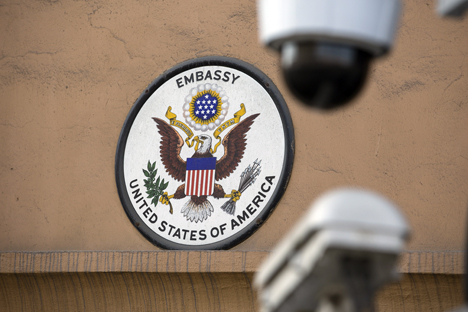Big Brother is listening: Beware

Russian journalists claim that Russian companies have long been supplying wiretapping technology and equipment to foreign markets.
Shutterstock/Legion Media"The Red Web", a book published in the United States by Russian journalists Andrei Soldatov and Irina Borogan, describes in unprecedented detail the efforts of the Russian government to monitor telecommunications.
The authors of the book claim that Russian companies have long been supplying wiretapping technology and equipment to foreign markets, particularly to Latin American countries.
Texts to Maidan protesters
Mobile phones of participants at an anti-government protest rally in Kiev on January 21, 2014, began to vibrate, one after the other. They received text messages saying, "Dear subscriber! You have been registered as a participant in the riots."
 Victoria Nuland and Geoffrey Pyatt distribute bread to riot police near Independence square in Kiev December 11, 2013. Source: Reuters
Victoria Nuland and Geoffrey Pyatt distribute bread to riot police near Independence square in Kiev December 11, 2013. Source: Reuters
Kyivstar, one of Ukraine’s major cell phone companies, said the messages were sent by pirate base stations known as IMSI-catchers. But there is another theory, which is related to Russia's System for Operative Investigative Activities, or SORM.
There were other scandals also; in particular, a recording of telephone conversations between Victoria Nuland, the U.S. Assistant Secretary of State who was in Kiev at that time, and Geoffrey Pyatt, U.S. Ambassador to Ukraine. These conversations were published on the Internet, and the recording received widespread notoriety because Nuland admitted her support for the anti-government opposition, as well as her disgust for the European Union's inability to influence the situation.
National voice-print system
The reach of SORM's developers extends to Latin America. In particular, this relates to the company, Speech Technology Centre (STC), founded in 1993 by Sergei Koval and Mikhai Khitrov, former employees of the Leningrad Long-Distance Communication Institute.
During the Soviet era, Koval was in charge of an acoustic laboratory involved in developing voice-recognition systems at the Long-Distance Communication Institute (Dalsvyaz), under the auspices of the State Security Committee (KGB). After the collapse of the Soviet Union, work in this field stopped, and Dalsvyaz's employees had to look for other jobs.
STC's team, however, managed to continue developing their area of expertise on a commercial basis. The company immediately received lucrative contracts from the FSB and, several years ago, a major share in STC was acquired by Gazprombank.
STC was even able to develop a nationwide voice recognition system, originally conceived in the Soviet era. It was launched not in Russia, however, but in Mexico, in 2008. The system allows the Mexican authorities to find people using biometric information, voice samples, photos, and so on. People who have to provide voice samples include law enforcement officials, prisoners, and other categories of people (like those seeking receiving a driver's licence).
A Russian trail in Colombia's scandal
In 2009, Colombia faced a major scandal when the country's secret service, Departamento Administrativo de Seguridad (DAS), was accused of intercepting telephone conversations of opposition politicians, journalists, and even Supreme Court judges. It was alleged that the DAS was acting on the orders of President Alvaro Uribe.
 Maria del Pilar Hurtado was sentenced to 14 years in prison on charges of illegally intercepting phone calls from opposition Colombian lawmakers. Source: Reuters
Maria del Pilar Hurtado was sentenced to 14 years in prison on charges of illegally intercepting phone calls from opposition Colombian lawmakers. Source: Reuters
DAS chief Felipe Munoz held a press conference in the Colombian capital Bogota, in which Koval took part as an independent expert. He said he studied about 20 audio samples related to the leaks, and concluded that they were made on different equipment from that used by the DAS. The Colombian secret service was therefore initially exonerated.
However, it later emerged that Koval's conclusions were incorrect. William Remero, former senior DAS officer admitted that he had arranged the wiretappings on the direct instructions of Maria del Pilar Hurtado, who earlier headed the DAS until 2008. Eventually, this surveillance data was supplied to President Uribe. Prosecutors brought charges against the DAS leadership. Hurtado was sentenced to 14 years in prison, and the DAS itself was disbanded in 2011.
First published in Russian in CNews.ru.
All rights reserved by Rossiyskaya Gazeta.
Subscribe
to our newsletter!
Get the week's best stories straight to your inbox
